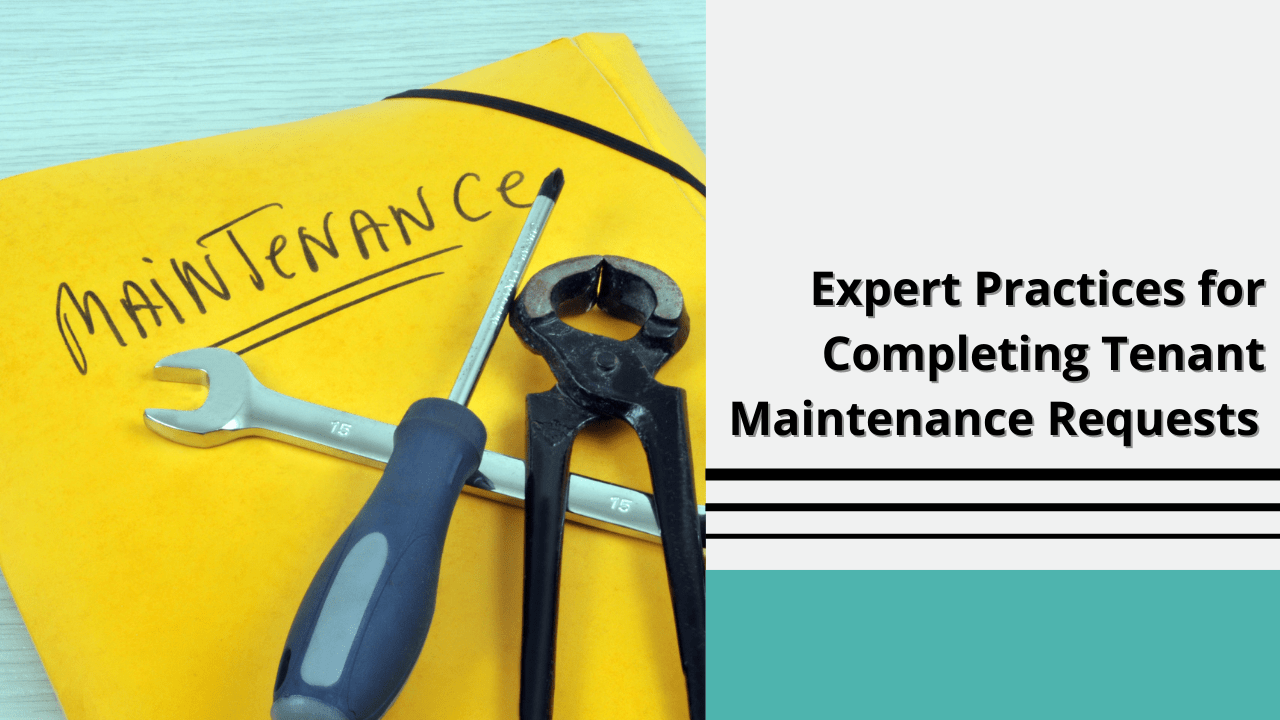
Responding to repair requests from your tenants right away is always better for you and your Prince George’s County investment property. A quick response and a documented process will preserve the condition of your property and keep your tenants happy.
When a repair request comes in, you want to be responsive, even if it seems like a minor issue and even if it seems like that particular tenant is calling with a new complaint almost every day.
We know rental property repairs can be expensive and we know it can be time-consuming. But, the alternative is deferred maintenance and surprise emergencies that are always more costly than those small fixes.
As a rental property investor, you know that when tenants stay for the long term and continue renewing their leases year after year, you’ll earn more money. You are expecting your tenants to pay rent on time and take excellent care of the property while they’re living there.
These are also excellent reasons to take care of any maintenance needs and repair requests quickly. Avoiding them will not save you money.
As smart investors know, a well-maintained property doesn’t cost you more money. It actually saves you money and helps you increase your rental income and your long term ROI.
You don’t have to be a professional property manager in Prince George’s County to handle maintenance requests like one. We’re sharing some of our own expert practices today, to help you offer a better and more responsive maintenance process for you and your tenants.
Before the Move-In: Provide a Well-Maintained Property
First things first – prepare your rental property for your new tenants.
You’ll need to get the property rent-ready before you put it on the market, and you’ll need to invest some time and resources into maintenance during every turnover period. Professional property management companies often have this down to a science and can get a property turned over in a matter of days. We have our own team of high quality vendors and contractors ready to make any repairs and do any cleaning that’s necessary.
To provide a well-maintained home, start by checking for any safety and health issues. As the property owner, it is your responsibility to meet basic habitability standards and codes. You’re required to provide a safe and habitable home. You don’t want to risk incurring any fines, dealing with tenant disputes, or defending yourself against lawsuits.
Check for things like:
-
- Loose railings
- Broken doors and windows
- Locks that aren’t working
- Exterior lights that have burned out
Make sure all of the outlets are functional, inspect the batteries in your smoke alarm, and be sure that there aren’t any trip hazards like uneven pavement, loose carpeting, or broken floor tiles.
Remember that a well-maintained home rents more quickly. Presenting a property that’s in great shape will help you ask more rent, find higher quality tenants, and get your rental income moving a lot faster.
It is well worth your time, effort, and investment to create a great living space and provide prospective tenants with a clean, safe, well-maintained property. When you hand over the keys to a home that’s in great shape, you can reasonably expect that your tenants will return it in the same excellent condition.
Budget for Prince George’s County Rental Property Maintenance
Before you put together a process for tenants to report the repairs they need, you must have some idea of how you’re going to pay for that work.
Labor costs and material costs are going up. It’s better to budget for more than you’ll need.
Even if your rental home is fairly new and in great condition; it’s going to need maintenance eventually. If you’re prepared for these events and expenses, you won’t have to worry about how to pay for them. A maintenance budget or a reserve is an excellent way to prevent the shock of repair bills.
Different people use different formulas for what to save. Some owners put aside 10 percent of the rent they earn every month into a reserve account. Others set aside the equivalent of one to two months’ of rental income every year to allow for ongoing and routine maintenance. You’ll also need a reserve of funds when tenants are moving out and you have to prepare your property for the new tenant. There are always maintenance and turnover costs, not to mention a lack of rental income during the vacancy period.
When you create a budget and set up a reserve, you’ll have a nice savings account at the end of the year, especially if you don’t have to use that money. There will eventually be large expenses like new roofs, new air conditioning units, and total paint jobs. Instead of scrambling to pay for those or finance them, you can dip into the savings you have set aside over the years of collecting rent.
How to be Responsive with Maintenance and Repair Requests
Always respond quickly to maintenance requests.
Your tenants should know what the procedures are to request routine maintenance as well as emergency maintenance. Emergencies will always demand your immediate response; any time there’s a flood, a fire, or a situation that puts your tenants in danger, you need to respond right away. A loss of air conditioning in the summer is also considered an emergency, as is a loss of heat in winter.
Your tenants should know how to reach you, and you should have a reliable and responsive team of vendors and contractors ready to respond to any help you might need.
We recommend that you respond to routine maintenance requests with the same sense of urgency. This reduces risk in liability plus improves retention. Tenants get frustrated quickly when they have a hard time making contact with you. This can lead to expensive tenant turnovers. When you’re responsive to the needs of your tenants, you’re showing them that you care about their comfort while they’re living in your home.
You’re also demonstrating that you’re committed to the condition of your property. A home that’s left to deteriorate will not only cost you good tenants, it will also hurt the rental and eventual sales value of your property. So, make it a priority to respond to your tenant’s requests.
For general repairs that aren’t emergencies, we recommend asking your tenants to put the request in writing. This is better than a phone call because it allows you to create a paper trail that shows when the request was made and what was done about it.
Document everything, including when the request was made, when you responded, and when the repair was completed. Keep track of all expenses, invoices, and communication.
Make Preventative Maintenance Part of Your Response
 Preventative maintenance will save you money every time. There is not a single repair that has ever become easier or less expensive with time.
Preventative maintenance will save you money every time. There is not a single repair that has ever become easier or less expensive with time.
When you’re responding to a tenant’s repair request, take the opportunity to look around the house and see if there’s anything else that needs attention. While resetting a garbage disposal, for example, a handyman may notice that the refrigerator is humming or a dishwasher is leaking. You can train your maintenance personnel to look for any additional problems or needs while they’re in the property. This will save you from expensive emergencies later.
Avoid deferred maintenance and don’t let the condition of your home deteriorate. Instead, be proactive. Check for problems every time you have the opportunity to visit the property. Taking care of a small leak under a sink today means you won’t have to deal with the catastrophe of a broken pipe, a flooded bathroom, rot, and mold later on. You never want to invite maintenance problems to become worse. They’ll only cost more.
Preventative maintenance should include a lot of things.
Make sure your tenants know that they need to change the air filter regularly. Have the HVAC serviced and inspected annually be a licensed technician. Stay up to date on your pest control services and landscaping.
Do the same with your plumbing. Water heaters can rust and begin to give you signs that they’re going to fail. Check the irrigation systems in your landscaping, particularly if you have sprinklers on timers.
Make sure you’re cleaning out the gutters, keeping branches and trees away from your roof, and looking for ways to prevent moisture and heat from getting into the property. Seasonal maintenance will help you ensure everything is running the way it should, and it will enable you to catch any small issues that have the potential of becoming more serious. Don’t let those maintenance problems escalate.
When you’re thinking about how you can best respond to a tenant’s maintenance requests, remember that working with a Prince George’s County property manager can often be your best solution. We already have these processes in place, and we have our own team of professionals who provide stellar maintenance services.
Need additional help? Please contact us at Stripe Management. We work with owners, investors, and properties in Upper Marlboro, Prince George’s County, Washington, D.C., Capitol Heights, District Heights, Baltimore, and anywhere in the DC metro area.
